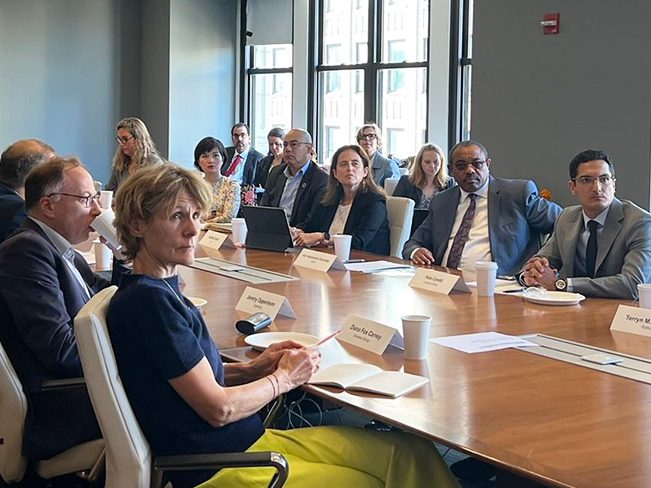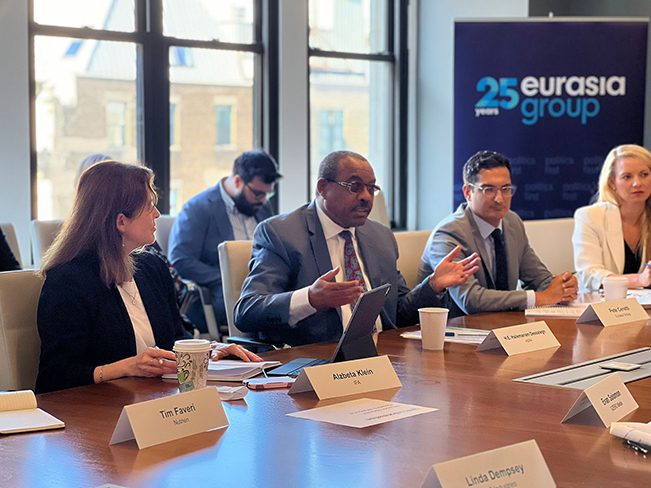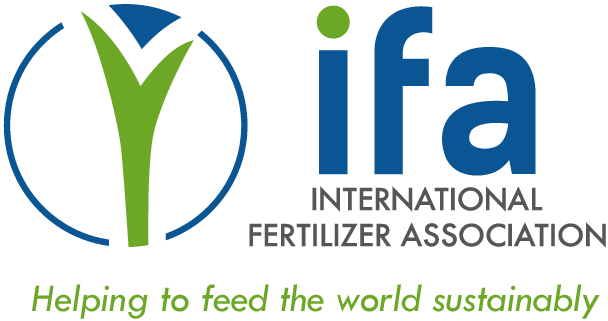Toward a sustainable and secure global food system
Food is essential to humans, and a healthy environment is essential to grow food. It might stand to reason that environmental protection would be at the forefront of agricultural policy. But the story is more complicated.
The protracted global conflicts and crises, caused first by the pandemic and then by the war in Ukraine, led to major disruption in global food supply chains. This was further aggravated by climate impacts, especially those observed throughout 2023. Policymakers and companies provided effective rapid-response solutions, attempting to correct market disruptions and offering relief in some of the hardest-hit countries.
As geopolitical conflicts increase, grab headlines, and shake markets, underlying threats continue. Food insecurity, climate change, biodiversity loss, and water stress are intertwined global risks that require a coordinated and focused response.
Food security dominates immediate priorities.
In 2022, food shocks hit 48 countries, and over 735 million people suffered from acute hunger – an increase of almost 20% compared to pre-pandemic levels. These estimates, from the International Monetary Fund (IMF) and the Food and Agriculture Organization of the UN (FAO) respectively, highlight the impact that the war in Ukraine is having on a food system already stressed by climate change impacts, covid-related supply chain disruptions, and increasing evidence of damage caused by accelerating biodiversity loss.
The effects would have been worse had global leaders not stepped in with policy reforms and prioritized grain, oilseed, and fertilizer exports from the Black Sea region. In selected cases, financial support from governments helped mitigate the negative effects on food systems.
Today, food security remains top of mind globally, and the current conflict in the Middle East will likely cause this to intensify. Inflation, coupled with a continuous focus on short-term actions risks impeding sustainability and longer-term ‘greener’ solutions in the food, energy, and climate sectors. High food inflation and the prospect of rising food insecurity are often sufficient to roll back sustainability policies, including in Europe, where governments have been most ambitious on biodiversity preservation.
So the lingering question remains: with climate change and biodiversity loss threatening long-term food security, is it possible to achieve the right balance?

Solutions are not zero-sum.
While short-term trade-offs exist, in the long term, environmental sustainability and food security are inseparable. Sustainability in agriculture used to focus on carbon. And while carbon remains an important component—both in terms of emissions reductions and financing opportunities—other factors such as biodiversity, soil health, and water are claiming equal ground.
Agriculture productivity plummets on degraded soil, without pollinators and with limited water. A third of the planet’s soils are now moderately to highly degraded, and the FAO projects that business as usual through 2050 could lead to additional soil degradation of an area roughly the size of South America. Regenerative agriculture is recognized as one approach to restore and maintain soil health, reverse biodiversity loss and provide both environmental security and food security.
Technologies and practices such as fertilizer best management practices, fertigation and digitized precision farming tools, or drought- and heat-resistant seeds have proven to create a bridge towards long-term goals of restoration and conservation of both water and land, as well as increased food crop production.
The road to more sustainable systems will need strategy, financing, and policy.
IFA and Eurasia Group held a roundtable during UN Climate Week on the topic of Sustainable solutions in times of crisis: Are we foregoing sustainability to safeguard food security, which featured participation from former Ethiopian Prime Minister, H.E. Hailemariam Desalegn, FAO Chief Economist Máximo Torero, UNCTAD representatives, along with several IFA members, Eurasia Group clients and Rabobank. The roundtable participants concluded that the move from our current systems to one of fully regenerative systems is a process. It cannot happen overnight without threatening global food production. Three key elements in this process are:
- While pieces are in place today, the overall strategy for this transition is complex. Plant nutrients will continue to play a critical role for food security. However, we need to continue to search for ways to produce them with a lower carbon footprint. And we need to focus on nutrient use efficiency, to reduce nutrient losses in the field.
- Financing will be essential on the pathway to sustainable agriculture. In the transition period, blended finance will be required, including to cover the costs of transition. While some blended finance is already used for agriculture, significantly more is needed. Financiers need better data on soil health and land management to better understand the investment risks and opportunities.
- Policy is a driver for agriculture companies, farmers, and financiers. Agricultural policy is politically sensitive, and many countries tend to focus on its own food security – both for practical food security reasons and also due to a deep-seated historic attachment to farmers.
The promulgation of environmental policies reverberates down to farmers and up to financiers who each follow today’s market signals. However, longer-term signals are less clear. Horizon-oriented investors such as pension funds and insurers see the impending risks of biodiversity loss and seek more transparency in biodiversity implications of their investments.
Also at UN Climate Week, the Taskforce for Nature-related Financial Disclosure (TNFD) released its guidelines for disclosing biodiversity risks, with agriculture being a featured sector. These guidelines will likely be integrated into corporate and investment risk analysis for most large companies in the next three to five years. These disclosures will help improve the overall understanding of the comparative financial risks of ‘business as usual’ versus the alternatives.
Moving forward
A transition to a more sustainable food system will require better data, a multi-stakeholder roadmap in each region, and finance for both near- and long-term solutions. The IFA and Eurasia Group roundtable discussion highlighted how collaboration between multilateral organizations, governments, the private sector, academia and NGOs will be vital if we are to make progress on these most fundamental issues. We will be continuing these conversations to facilitate a pathway forward that protects the long-term health of the global population and the planet itself.
It’s one simple, but effective, way to work towards achieving that balance between environmental sustainability and food security. Out of conversation, comes action.


